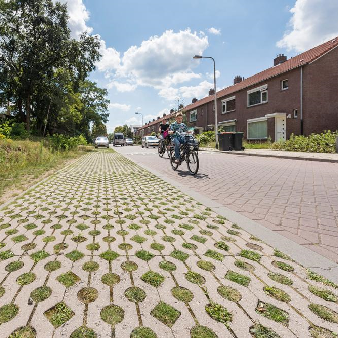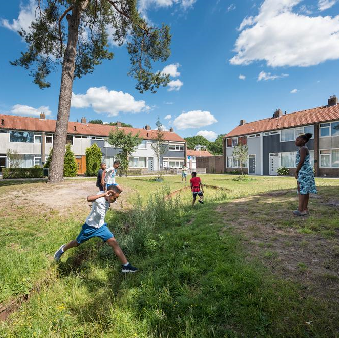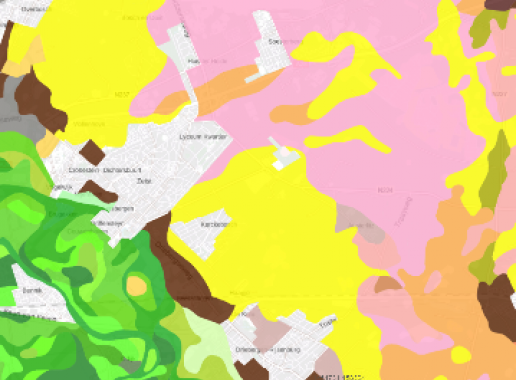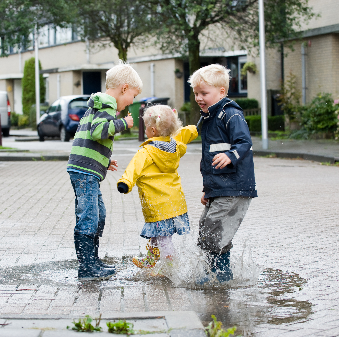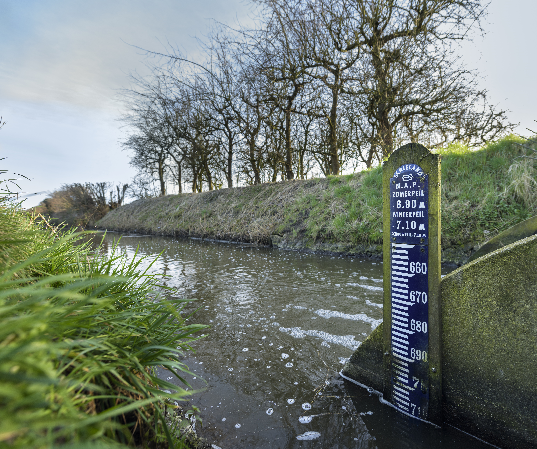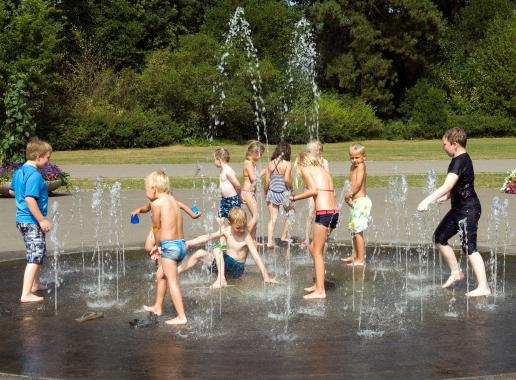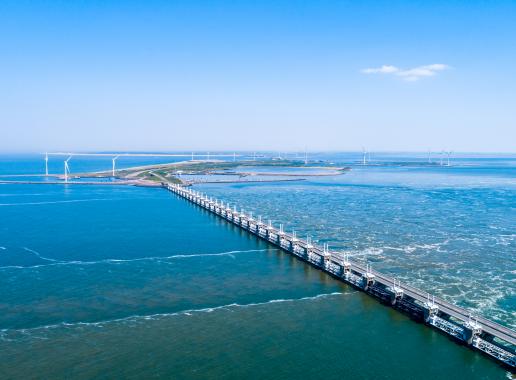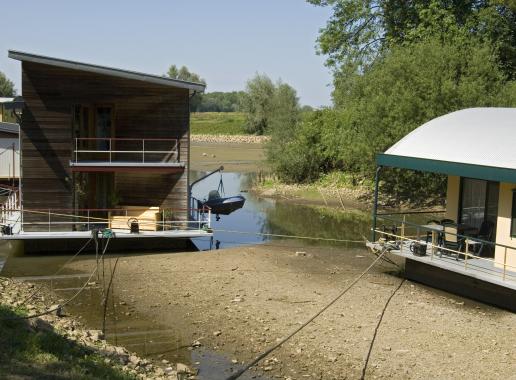foto
Why is it getting wetter and how does this happen?
Heavy showers cause fields, streets, tunnels and basements to flood. This is because our climate is changing. Higher temperatures mean more water vapour in the air. In the summer we have to deal with heavy showers and in the winter it rains for longer periods. As a result, flooding can occur more often. Inundation can occur when it rains hard. The sewers cannot process all the water that quickly. Nor can the rainwater sink into the ground or flow into the waterways quickly enough. This is because large parts of the Netherlands are covered with stones or asphalt.
Not equally wet everywhere
Short-lasting showers are equally frequent throughout the Netherlands. Long-lasting heavy showers mainly occur in the west of the Netherlands and in the south of Limburg. Where flooding occurs also depends on the type of soil. In sandy soil, water can sink into the ground quickly. In peat and clay areas, the water remains on the ground longer.
Afbeelding
Collecting water
During downpours, a lot of rain locally falls in a short period of time. Sewers can often drain some of it, but not all of it, which then ends up on the street. The water then runs down the streets and tunnels to the lowest point. At the lowest points, we can store extra water. This way, rainwater temporarily ends up in canals, ponds, green playgrounds, bioswales and water squares. The green living environment absorbs the excess water. We can then use the water again during drier times.
Foto regenplas
Effects on your health and environment
Safety Flooded streets and tunnels cause problems, as people are less accessible. Ambulances and other emergency services cannot reach the scene quickly. Too much water damages things in your house and garden. If water flows into your home, moisture and mould problems can occur.
Sewage in the street People, and especially children, playing in the water can become ill from water standing in the street for a long time. Dirty water from the sewer can end up in the street, but also in gardens and houses. Dirt from the street, such as dog/cat droppings, also mixes with rainwater during heavy showers.
Food Flooded fields cause vegetables and potatoes to rot, which means that less food can be grown.
Foto regenplas
Effects on your health and environment
Safety Flooded streets and tunnels cause problems, as people are less accessible. Ambulances and other emergency services cannot reach the scene quickly. Too much water damages things in your house and garden. If water flows into your home, moisture and mould problems can occur.
Sewage in the street People, and especially children, playing in the water can become ill from water standing in the street for a long time. Dirty water from the sewer can end up in the street, but also in gardens and houses. Dirt from the street, such as dog/cat droppings, also mixes with rainwater during heavy showers.
Food Flooded fields cause vegetables and potatoes to rot, which means that less food can be grown.
Prepare for a wetter climate
- Help to store water in your own garden. Lay permeable pavement and plant lots of greenery. Read about the water-friendly garden.
- Green up your garden. Replacing tiles with grass or plants helps rain to sink into the ground. A green garden also provides more cooling in hot summers.
- Install green roofs in public spaces, such as bus stops or bicycle racks.
- Install water-storage crates under the terrace, for example. Or create a green roof on your shed or roofing. The crates and the green roof slow down the drainage of rainwater. The water will go into the soil when there is space again.
- Place a water-storage fence or rain barrel. You can then use the stored water to water your plants.
- You can find more tips on preventing flooding on Ons Water and on the links below.
foto
What is the policy for a wetter climate?
The water level-resolution determines the height of the water. When making a water level-resolution, the water board considers the use of water in the area, for example for agriculture, nature or buildings, and the other interests in the area. When the water level is low, the soil can absorb more rainwater. This does mean that there is a chance of dehydration of agricultural and nature areas and foundation problems with houses. When the water level is high, it is more difficult to cultivate and graze agricultural land.
Water boards and municipalities do a lot to prevent flooding. They ensure that the waterways and sewers are well maintained so that the water can flow through. They will also allow water to flow through sooner if they know that a lot of rain is coming. Clean rainwater no longer ends up in the sewers because it is collected separately. Municipalities lay green strips, green roofs and permeable strips along roads. This allows water to sink into the ground and prevents the soil from drying out. More and more municipalities are encouraging home and garden owners to green up and collect rainwater.
Also check out these pages

